Stellaris: Apocalypse [Steam] is set to be a pretty big expansion, with lots of goodies to come for Stellaris fans. It's releasing soon, so Paradox has an overview video up.
As a reminder, it will release on February 22nd. As usual for Paradox games, it will also see a big patch release full of fixes and new features free for existing owners.
Without further ramblings, here's their new overview video:
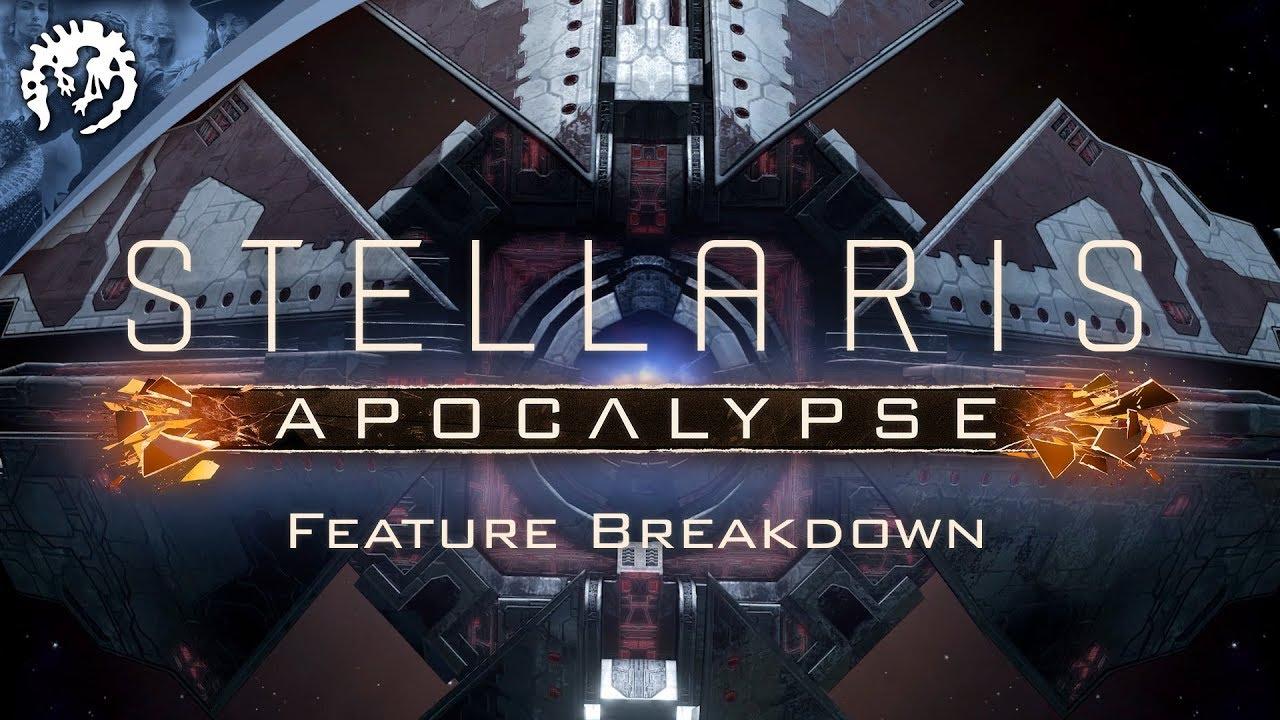
Direct Link
I honestly can't wait to start blowing up planets, time for my Empire to rule the stars. I've thought for too long the combat in Stellaris was quite lacking, so it's pleasing to see it become the focus for this expansion.
Also, while we're on the subject of Paradox, it seems one person at Paradox Interactive (the publisher, not to be confused with the actual developer, Paradox Development Studio) noticed a decline in Linux sales. Would be a good time to show them it's worth continuing to support us. Here's what they said on Twitter:
[…] Sadly Linux is less than a percent of the sales and keeps dwindling. SteamOS didn't turn out to be what we all hoped. The Linux community needs to grow or spend more to stay viable.
It's a little disconcerting to read, but hopefully they will continue to support Linux gaming for some time. Paradox Interactive do publish a bunch of games that don't support Linux, but perhaps if they see an improvement in future more of their published games (in addition to games directly from Paradox Development Studio, like Stellaris) may see Linux support. A number of their games do cater to a niche, so perhaps their games just aren't as popular as I thought they would be with Linux gamers. I've asked if they can share any specific data about it, so hopefully we can talk about that more in future.
Ps. I realise it can be confusing with the publisher and developer both starting with "Paradox", but they are different. The article text was adjusted after publishing to make it much clearer.
If people like you would finally put their knuckleheaded ideology away and start buying games from Steam they would have bought from GOG without even thinking twice, publishers like Paradox wouldn't think about dropping support for us. In other words, yes, I think you're a part of the problem here.
I have bought games from Steam, GoG, Humble and Itch. I will likely buy from all of them again in the future. I have among other things a Netflix subscription.
But even though I accept DRM I have no delusions about how bad it actually is for us as consumers: https://www.defectivebydesign.org/faq
DRM takes away rights we should have under copyright law (such as fair use) by making it technically impossible to make use of those rights. It also allows actions against you if you try to brake the DRM under laws such as DMCA.
The argument that Steam's DRM isn't so bad in comparison or that it could be much worse I think is a little like arguing that you should be happy that someone is only sexually harassing you because it could be much worse and they could be raping you (sexual harassment and rape are of course two things that are much worse then DRM).
I envy people who can take a hard stance against DRM. I wish I could do that too. If enough of us did then DRM would be a thing of the past.
If you want argue that someone taking a hard stance against DRM is responsible for publishers not bringing games to Linux then I want to argue that you (and I) are responsible for DRM existence.
I also find it hard to believe that Linux is the only platform where people reject games with DRM. GoG and Humble both have more DRM free games for Windows then Linux but I don't see anyone arguing that the people using Windows and reject DRM will cause publishers to not bring games to Windows.
It is looking like the market share of Linux for gaming in specific may be less than 1%. I've been wondering about the difference; are Linux users mostly not gamers?
Actually, this feels about right. A quick Googling of the gaming and Windows stats seems to validate it. Let's assume, for the moment, that nearly 100% of American households have a computer (not far off). It seems 60% of households have someone who games. Roughly half of those gamers are doing so on a desktop, so roughly a third of households with a desktop game on it. If Linux desktop usage is 2-3% and the same stats hold that a third of those users are gamers, then it's possible that Linux gamers are less than a percent of the overall desktop gaming total.
Again, though, as many have said, it's not all about numbers. Linux users are among the more loyal and knowledgeable of the bunch. The Astrokill dev, for example, I think has said that although small as a percentage, his Linux players have been responsible for finding and killing most of the bugs and issues in the game's cross-platform engine.
Last edited by iiari on 16 Feb 2018 at 1:51 pm UTC
It is looking like the market share of Linux for gaming in specific may be less than 1%. I've been wondering about the difference; are Linux users mostly not gamers?
Given that for the longest time of Linux' existence you had to accept having no games whatsoever available for it, I guess that's a safe assumption to make. For all but the last 3-4 years (plus the short time when Loki ported some games), Linux was one of the few operating systems on Earth you absolutely couldn't game with. I guess it's safe to say that -nobody- here starting using it for gaming, and I suppose a OS you can't game with is particularly attractive to people who don't game in the first place.
In my (totally not representative) group of Linux users I know in real life, I am the only gamer...
Last edited by Kimyrielle on 16 Feb 2018 at 4:01 pm UTC
It is looking like the market share of Linux for gaming in specific may be less than 1%. I've been wondering about the difference; are Linux users mostly not gamers?
Given that for the longest time of Linux' existence you had to accept having no games whatsoever available for it, I guess that's a safe assumption to make. For all but the last 3-4 years (plus the short time when Loki ported some games), Linux was one of the few operating systems on Earth you absolutely couldn't game with. I guess it's safe to say that -nobody- here starting using it for gaming, and I suppose a OS you can't game with is particularly attractive to people who don't game in the first place.
In my (totally not representative) group of Linux users I know in real life, I am the only gamer...
The only Linux users I have ever known are IT professionals ( development or operations ). Some game, but most just liked having control over their PC.
The real problem with Linux adoption on the PC is that no-one is selling it. It has no brand, it has no retail presence. For the vast majority of all PC-like devices purchased, it is simply not an option that is presented.
Canonical have come closest to making the transition to a "brand" in the Linux PC space, but they have simply not had a good enough financial argument to get majo OEM interest.
In contrast, in the Smartphone market, several very large brands have made Linux in the guise of Android a dominant force; but this was in a void where there was no dominant alternative.
This is, I suppose, why SteamOS seems to have failed. There was never really enough of a coherent plan to get people buying anything that came with Linux by default.
No-one knows how much money Valve have spread around H/W OEMs and game developers, but whatever it was, it was not done in an effective manner.
let us hope we are spending enough to keep at least some games companies interested.
This is, I suppose, why SteamOS seems to have failed. There was never really enough of a coherent plan to get people buying anything that came with Linux by default.
And at least part of the reason why: Valve did not promote Linux, it promoted "SteamOS" (or tried to do so) while forcefully removing the word "Linux" and even Tux icon from it. I bet half of the general audience hadn't got a clue about what OS it was.
This is what I find interesting though, you're not forced to buy the DLC, you can likely buy the base game and be content with the many hours it would bring you. Once it feels stale, pick up one the major DLC and so on. Paradox strategy games are generally full of content to keep you busy without expansions.I think their approach is one of the best personally.so Paradox, expect me to buy some DLC real soon!
I don't think their approach to DLC helps them personally... I own Stellaris but I've held fire on buying the DLC as they *just keep coming* and this seems to be a recurring theme...
For these titles I tend to wait for a 'collector's edition'.
They have seriously long-term support for their games, more so than the vast majority of developers. Pushing out DLC (that is not required) enables them to continue getting funds for each team working on each game, plus they always do a free content patch with each DLC.
Totally appreciate the support Paradox has given to the Linux gaming scene.
I've got very limited time to play a game nowadays (I appreciate your job allows the freedom to re-visit titles) I'm fortunate to get a single visit! I don't want to buy thinking there is likely to be 5+, game play changing, additions to the content.
I agree with their approach but not with their pricing.
If wanted to get into Europa Universalis IV, I would definitely want to get all of the DLCs (other than skin packs etc.). That's solely for the reason how Stellaris DLCs have greatly improved the game.
Here's the problem though: The normal price for complete Europa Universalis IV pack is nearly 300€. For this reason alone, I've been holding off buying the game. I think the maximum should be around 100€ to get the game and existing DLCs.
This is, I suppose, why SteamOS seems to have failed. There was never really enough of a coherent plan to get people buying anything that came with Linux by default.
And at least part of the reason why: Valve did not promote Linux, it promoted "SteamOS" (or tried to do so) while forcefully removing the word "Linux" and even Tux icon from it. I bet half of the general audience hadn't got a clue about what OS it was.
That's rather the point I am trying to make. "Linux" or "GNU/Linux" is not a brand, and not a product; it is more of an architecture label. Brands/products are the named distributions of that architecture, such as Ubuntu, Arch, Red Hat etc, and, of course SteamOS.
Most distributions do append "Linux" or "GNU/Linux" to their formal name, but the "brand" is usually just the one or two word distribution name.
SteamOS does not bother adding Linux to the name for a number of reasons. Firstly, they were designing a distribution whose primary purpose is to play Steam games from an OS designed to replicate a console experience. Secondly, they really were not focussed on the general ( non-game ) part of the distribution at all, so using "Linux" would be a bit misleading. And finally, their "brand" is "Steam", and it is actually MUCH stronger as a brand than Linux. If "Linux" as a brand was ever going to draw people away from othe PC operating systems in the consumer space, it would long since have done so.
If a SteamOS console had ( or will ) ever been successful, Linux users ( i.e. other distributions ) would benefit tangentially. I can honestly only ever see PC users moving to Linux in significant numbers if market actors like Microsoft make the existing status quo unacceptable.
Here's the problem though: The normal price for complete Europa Universalis IV pack is nearly 300€. For this reason alone, I've been holding off buying the game. I think the maximum should be around 100€ to get the game and existing DLCs.Well, you're in luck at the moment, there's a 50–75%-off sale right now on absolutely everything EU IV related (as far as I can tell). :) Should be able to get the base game and all gameplay DLCs for <100€ I'd imagine.
You can also feel free to skip some of the DLCs if they don't improve a region you plan to be playing in, as EU IV ones are sometimes more focused on regions than universal like Stellaris ones are. Conquest of Paradise, for instance, focuses mainly on North and South American natives (but not Mesoamerica or the Incas, that's El Dorado), and could probably be safely skipped unless you want to try playing as one. (Or are like me, and just need the satisfaction of knowing that the simulation everywhere in the world is the best it can possibly be, even if I'm playing in India and will never get to the New World. :D )
EDIT: If anyone else is jumping on the pre-order, I apparently get something out of it in-game if you use this link [https://www.survivingmars.com/invites/jo4DjM](https://www.survivingmars.com/invites/jo4DjM) ;)
Last edited by Cybolic on 19 Feb 2018 at 9:36 pm UTC
What they don't see is when a Linux user such as myself picks up their game and then gets all his windows buddies to pick it up as well. I mean I got 7 other people to purchase it. Come on
Why not reply to him via the linked Twitter message? :).
I don't have Twitter.
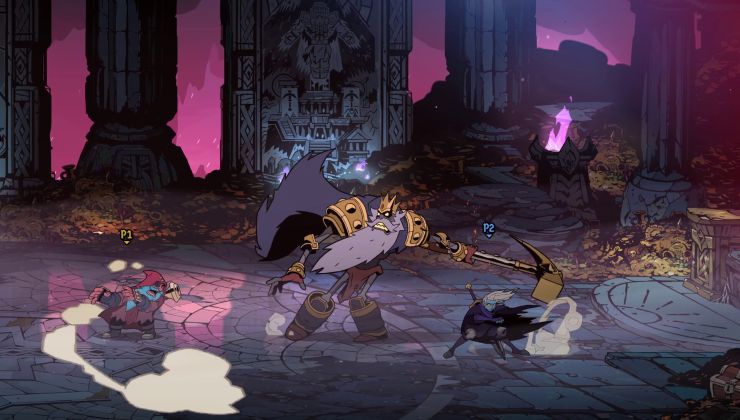
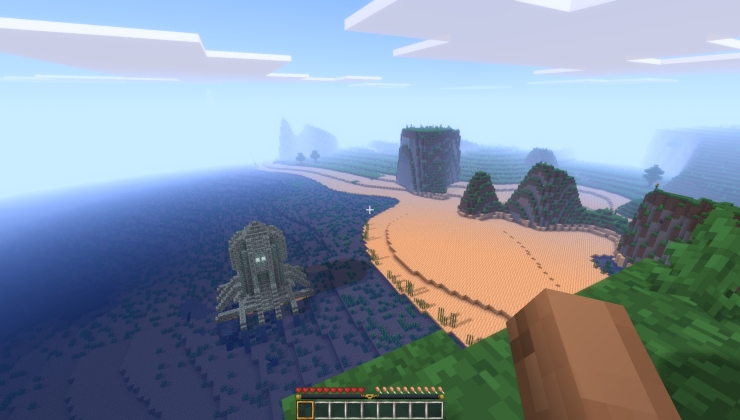
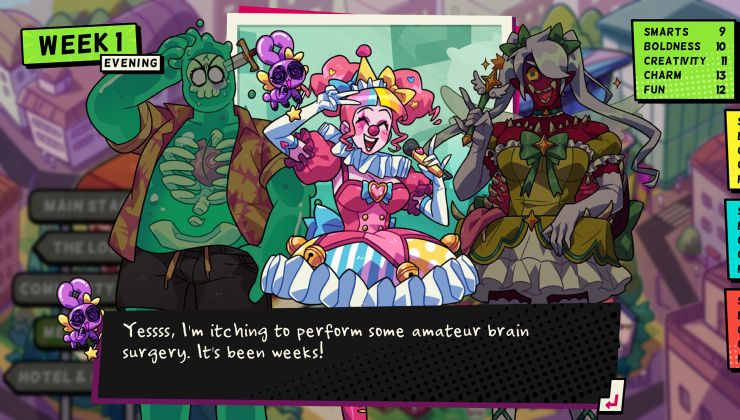
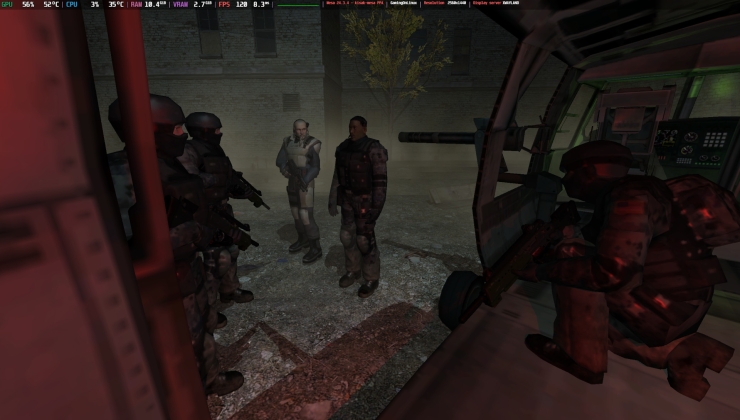







 How to set, change and reset your SteamOS / Steam Deck desktop sudo password
How to set, change and reset your SteamOS / Steam Deck desktop sudo password How to set up Decky Loader on Steam Deck / SteamOS for easy plugins
How to set up Decky Loader on Steam Deck / SteamOS for easy plugins
See more from me